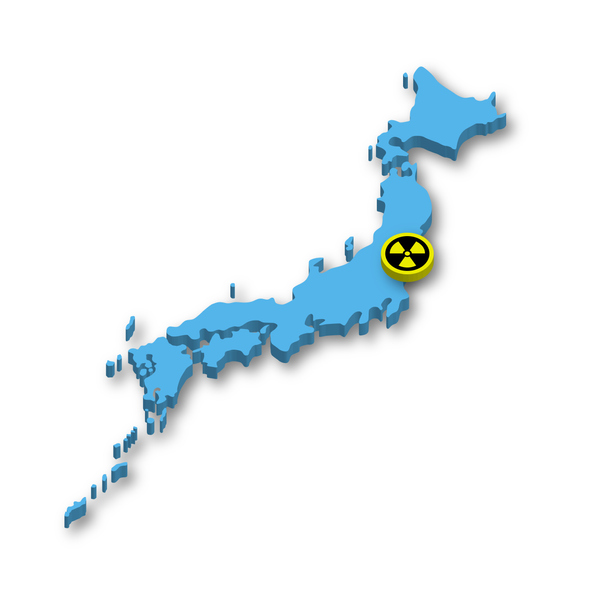Korea’s Ministry of Food and Drug Safety (MFDS) said it would maintain the import ban on seafood produced from Japan’s eight prefectures, while Prime Minister Han Duk-soo asked the Korean people to “trust the government and trust science” amid Japan’s Thursday release of the treated radioactive water from the damaged nuclear plants in Fukushima into the Pacific Ocean.
When asked whether the import ban conflicts with the stance of the Korean government, the MFDS said Japan's release of radioactive water from the Fukushima Daiichi Nuclear Power Plant and Korea’s ban on imports of seafood from the area were two separate matters.

Many Koreans have expressed concerns about Japan's growing pressure to lift the ban on seafood imports from the Fukushima region.
Since September 2013, the MFDS has banned the importation of all seafood from the eight prefectures -- Fukushima, Aomori, Iwate, Miyagi, Ibaraki, Tochigi, Gunma, and Chiba -- surrounding the nuclear power plants and also testing seafood from outside the eight prefectures for radioactivity upon importation.
Citizens are also questioning why the Korean government is okay with Japan releasing the controversial radioactive water, despite the continued seafood ban from the area.
“I don’t understand the decision,” said Jung Young-soo, an office worker in his 30s. “My family will not be eating seafood from Japan or the East Sea for some time until every scientific evidence has been verified.”
Regarding such concerns, a spokesperson at the MFDS said the ban on importing seafood from the Fukushima region was put in place because of the release of “heavily” contaminated water into the ocean during the nuclear disaster caused by the 2011 earthquake and tsunami that struck northeastern Japan.
"The ban remains in place because there may still be a risk, given the half-life of radioactivity," the MFDS spokesperson told Korea Biomedical Review, asking to remain anonymous due to the issue's sensitivity. "So, there is no conflict between the discharge of radioactive water now and the import ban."
The World Trade Organization (WTO) has also recognized the legitimacy of Korea's import ban, he added.
According to the MFDS, the inspection for imported seafood from Japan is a three-step process consisting of document inspection, on-site inspection, and elaborate inspection.
Document inspection is the stage where the importer completes the import declaration and submits it to MFDS, and the inspector reviews the declaration and supporting documents to ensure that they are adequate.
During on-site inspection, the inspector visits the warehouse where the fish is being stored and checks the condition of the stored fish.
In elaborate inspection, the ministry analyzes whether and how much radioactive material is contained in the seafood. During this process, fish collected in the field are cut into small pieces and put into a grinder.
Afterward, a high-purity germanium detector is used to measure the radioactive material in the fish for 2 hours and 47 minutes.
If any radioactive substance is detected in the analysis, even in trace amounts below the threshold (100 Bq/kg of cesium), the importer is required to provide a certificate of 17 additional nuclides certification recommended by the Codex Alimentarius Commission, which means that such products are effectively banned from entering the country.
For reference, Korea’s radioactive substance standards are more than 10 times higher than international standards, which is 1000 Bq/kg of cesium.
Prime Minister Han has reaffirmed the Korean government's position on strictly maintaining import restrictions on Japanese seafood and agricultural products.
"There are citizens concerned about the potential relaxation or removal of import restrictions on Japanese food items, fearing it may compromise the safety of their dining tables," Han said. "I want to assure you that such an event will not take place."
The current policy, as elucidated by the Prime Minister, bans imports of all seafood from eight Japanese prefectures. Additionally, the import of 27 types of agricultural products from 15 prefectures is also prohibited.
"Every food item imported from other areas in Japan also undergoes a rigorous radioactivity check," Han said. "These import restrictions were put in place after the 2011 Fukushima nuclear plant incident to protect our citizens from high-concentration radioactive materials that were released uncontrollably into nearby waters."
Han also called on Japan to uphold a commitment to transparency and responsibility over the next three decades concerning the discharge of water from the Fukushima nuclear plant.
In light of the ongoing concerns, Han emphasized the importance of Japan adhering to the scientific standards they pledged to the international community.
Japan has consistently maintained that the discharge of treated radioactive water is harmless. This stance has been supported by the International Atomic Energy Agency (IAEA), which reported that the consequences of the water's release on humans and the environment would be "insignificant" in July.
However, 84 percent of Koreans was against the idea of the radioactive water release in a survey in June.

